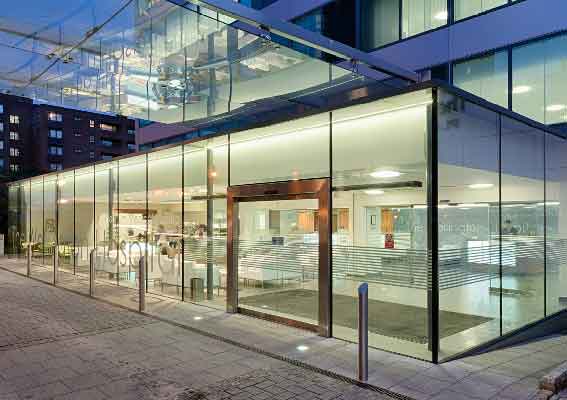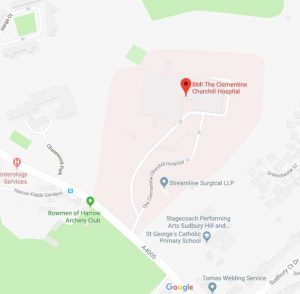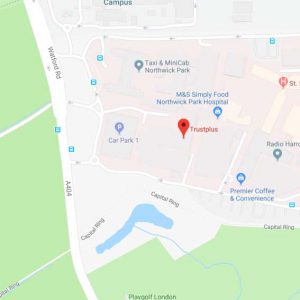Excellence in diabetes and endocrinology care
Amongst London’s premier clinics for endocrine and diabetes care

Why choose us?
Caring and efficient
Our friendly staff are here to provide you with best and most efficient care in London.
The highest quality
We strive to provide you with the highest standards of care at world-class facilities.
Our reputation
Our patients have so many positive things to say about us. Please review our feedback.
What is endocrinology
Endocrinology is the medical speciality that is concerned with hormones and the glands that produce these. Endocrine glands include adrenal, thyroid, pituitary, parathyroid, pancreas, testis, ovaries, etc. Endocrine disorders may result from under or overproduction of hormones. Other endocrine conditions may affect the relevant gland without causing dysfunction.
We manage endocrine disorders and all types of diabetes. Examples of medical conditions that endocrinologists manage are: type 1 and type 2 diabetes mellitus, hypothyroidism, hyperthyroidism, Addison’s disease, Cushing’s disease, etc.
London endocrinologist and diabetes consultant
Our friendly, approachable method has been the source of help and reassurance for thousands of patients. We are passionate about and dedicated to providing you with the best treatment. We deliver the highest levels of care and service to our patients.
Dr Asjid Qureshi is an experienced and caring endocrinologist and diabetologist who consults privately at the Wellington Hospital (London, UK) and Clementine Churchill Hospital (Harrow, UK) and is a recognised provider by all popular insurers.
Dr Asjid Qureshi has specialised in diabetes and endocrinology since 1997. He provides an efficient, highly professional service that is tailored for patients and colleagues. Please take time to review the feedback from his patients.
He is an expert in dealing with diagnoses such as poor diabetes control, hypothyroidism, hyperthyroidism, thyroid nodules, hypercalcaemia, etc.
Poor diabetes control?
Dr Asjid Qureshi is an expert in diabetes mellitus. He has a wealth of experience in managing patients with type 1 and type 2 diabetes including insulin pump therapy and continuous glucose monitoring devices.
His exemplary approach in tailoring a therapy package has helped many of his patients to improve their control and build their confidence in managing their condition.
Please take time to read some of the feedback he has received from patients whose diabetes control he has helped to improve.
Dr A Qureshi is a recognised by: AXA PPP, BUPA, Cigna Healthcare, Exeter Friendly Society, Healix Health Services Ltd, HSA, Medisure, Norwich Union, PruHealth, Simplyhealth, Standard Life, WPA and others.
Dr A Qureshi also sees self-funding patients. International patients can arrange video and telephone consultations by contacting 07733595617 or completing the contact form below.
“Thank God for for the gift given to Dr Qureshi. He is the best when it comes to the treatment of Endocrinologist and Diabetologist. He is a master in that field and commands a lot of respect:”
Frequently asked questions
What is the difference between an endocrinologist and diabetes consultant?
An endocrinologist is a consultant who specialises in the management of hormonal disorders such as hypo- and hyperthyroidism, Addison’s disease, primary hyperparathyroidism, etc. A diabetologist is a consultant who specialises in the management of diabetes mellitus. Consultants who work in district general hospitals tend to specialise in both diabetes and endocrinology. Consultants from tertiary hospitals are more likely to continue practising one, but not the other.
Why do I need to see an endocrinologist or diabetes consultant?
You should consultant an endocrinologist if you are suspected to have a hormonal disorder (e.g. hypothyroidism, hyperthyroidism, Addison’s disease, hyperparathyrooidism, etc.) You may want to consult a diabetologist if (i) you have recently been diagnosed with diabetes mellitus, (ii) have poor control, or (iii) have complications of diabetes.
What is the difference between a paediatric and adult endocrinologist?
A paediatric endocrinologist sees patients under the age of 16-18 yrs. The precise cut-off varies depending on the consultants and factors such as medical indemnity cover. Patients older than this, should consultant an adult endocrinologist. Many of the disorders treated in endocrinology are similar in paediatrics and adulthood, but there are many disorders that are specific to each age group e.g. growth disorders in children, but not adults.
How to find an endocrinologist near me?
To find an NHS endocrinologist, visit your local hospital’s website and search under endocrinology and diabetes department.
To find a private endocrinologist near you, you can use various sources.
1. Your local private hospital (e.g. BMI, Spire, HCA) website and search under specialty “endocrinology”
2. Search insurers websites (e.g. BUPA) and search using your post code
3. Use search engines such as Google or Bing for “consultant endocrinologist.” An increasing number of private endocrinologists are registering their business with search engines.
How to find a good consultant endocrinologist?
Patient, friend and relative recommendations are very important. Your GP will often also be able to recommend a consultants in your area. Independent sites such as Google Business Reviews and Bing are also useful and provide a balance of reviews. We recommend avoiding websites that list doctors as top, ace or my specialist for a fee.
How do I know if a private consultant endocrinologist is any good?
To find a good endocrinologist for your initial consultation, ask friends, colleagues and associates for recommendations. You should also search independent websites such as Google and Bing business reviews. We recommend avoiding websites that list doctors as top, ace or my specialist for a fee.
To know if your current endocrinologist is good, you can (i) seek advice from your GP, (ii) compare with the advise you receive from other equivalent specialists you see in the NHS, (iii) assess the response of your symptoms to treatment, (iv) if you are still concerned, you can seek a second opinion from another endocrinologist.
How do I see an endocrinologist or diabetes consultant privately?
If you have health insurance, you should first obtain authorisation and approval from your insurer and then arrange an appointment to see an endocrinologist by contacting the relevant secretary or the private hospital booking office.
How can I be referred to an endocrinologist or diabetes consultant?
Insurance companies usually require a patient to be referred to an endocrinologist by a GP or another specialist involved in your care. Self-pay patients can self-refer to an endocrinologist and diabetologist.
Do I need a GP referral for private treatment?
It is always best to obtain a GP referral letter. This is indeed a requirement of many health insurers. Depending on your policy, you may not be covered for costs of consultation/investigations if you are seen without a referral letter. Self-funding patients can self-refer to an endocrinologist.
What can I expect from a private consultation with an endocrinologist?
You should expect to undergo an assessment (history obtained and examination) and appropriate investigations. Once a diagnosis is made, treatment should be commenced and reviews undertaken to ensure symptoms have resolved or improved.
Will my GP follow the advice or recommendations of a private endocrinologist?
If the clinical opinion you have received is sound, your GP will usually follow the advice and recommendations given by your private endocrinologist. This applies to both investigations (if required to undertake in the NHS) and treatment. Whether your GP follows the advice completely is at his/her discretion.
Will my diabetes control improve after seeing a private endocrinologist?
Assuming the correct dietary, exercise, lifestyle and medication-related advice is given, your diabetes control should improve if these are adhered to. For the greatest efficacy, management should be highly personalised.
Can I be transferred to an NHS list after seeing a private endocrinologist?
A consultation within the private sector does not entitle you to an NHS consultation. To be seen within the NHS will require a referral letter from your general practitioner to be sent to an endocrinologist within the NHS.
How soon can I see an endocrine consultant?
It is often possible to see our consultant within 24 hours. He has two regular private clinics per week, but can often see patients on other days on an ad hoc basis.









